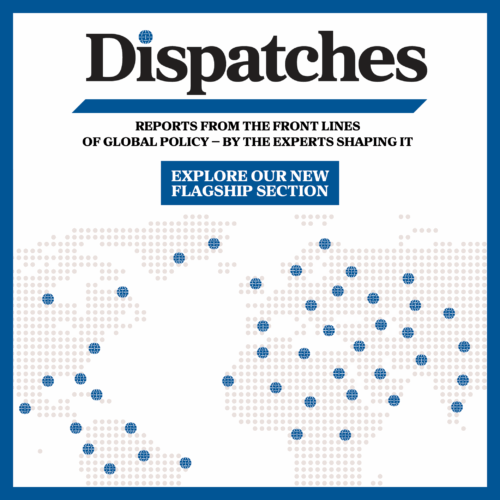Just three weeks ago, the International Olympics Committee signaled that a new era in international affairs had finally begun. By eliminating Chicago a personal appeal by President Obama, the IOC subtly told the United States that its unipolar moment was over. Instead, future international affairs will be dominated by different regional power centers-the European Union, China, India, and Brazil. Just as much as the 2008 Olympics in Beijing was China’s coming out party, the 2016 games in Rio would be Brazil’s. Analysts and commentators interpreted this as another nail in the coffin of U.S. soft power. Many of the arguments are based on Paul Kennedy’s argument in the Rise and Fall of Great Powers and accept the inevitability of American decline.
Instead of imperial incompetence, pessimistic interpretations of U.S. power may be wrong.
Just a week ago, the Nobel Committee selected President Obama as its 2009 Peace Prize winner. More than a consolation prize after Olympic Committee defeat, the prize underscored that American soft power is not dead.
The dismayed focused on how premature the award may be. But the award is about the attractiveness or soft power of American leadership, rather than the recognition of specific accomplishments. President Obama, himself, seemed to interpret it this way during his early morning press conference:
I am both surprised and deeply humbled by the decision of the Nobel Committee. Let me be clear: I do not view it as a recognition of my own accomplishments, but rather as an affirmation of American leadership on behalf of aspirations held by people in all nations.
To be honest, I do not feel that I deserve to be in the company of so many of the transformative figures who’ve been honored by this prize — men and women who’ve inspired me and inspired the entire world through their courageous pursuit of peace.
But I also know that this prize reflects the kind of world that those men and women, and all Americans, want to build — a world that gives life to the promise of our founding documents. And I know that throughout history, the Nobel Peace Prize has not just been used to honor specific achievement; it’s also been used as a means to give momentum to a set of causes. And that is why I will accept this award as a call to action — a call for all nations to confront the common challenges of the 21st century.
The contradictory decisions suggest views of the United States are mixed, yet the U.S. president is viewed as a global leader. This is evident beyond Africa, where Obama’s image is ubiquitous, but also throughout the developing world where his message of hope inspires younger generations.
It is not that the United States is a declining empire; rather, the terms empire or hegemon do not adequately describe the United States. While the current international system speaks with an American accent, the United States and Americans are also vulnerable to the same international system that causes concern around the world. Thus, it is American leadership that is still demanded.
Writing in reaction to the cottage industry of seeing the United States in decline, Alan Dowd noted that, “America has a magnetic pull on peoples of every race, religion and region.” This is evident in emigration patterns, international students in American colleges, and the desirability of American companies as joint venture partners. While the world will learn more about Brazil and experience Rio in 2016, it cannot ignore the United States. The Nobel Committee reminded us of that.
When it comes to dealing with climate change, confronting economic challenges, supporting peace processes, preventing nuclear proliferation, President Obama has his work cut out for him. These are complicated issues that governments have been wrestling with for decades. Fortunately, he has renewed the United States’ global appeal, which is required to confront transnational challenge. The changed nature of security today requires global cooperation and soft power is a necessary tool.
Derek Reveron, an Atlantic Council contributing editor, is a professor of national security affairs at the U.S. Naval War College in Newport, Rhode Island. These views are his own.
